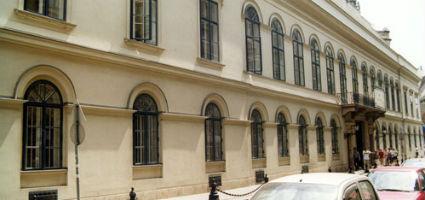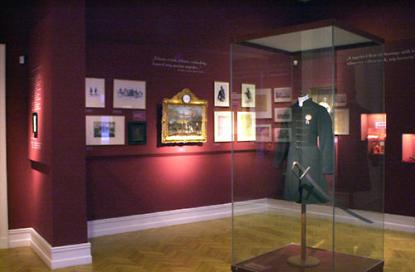2025. April 19. Saturday
Museum of Literature Petőfi - Budapest
 |
Address: 1053, Budapest Károlyi u. 16.
Phone number: (1) 317-3611
E-mail: muzeuminf@pim.hu
Opening hours: Tue-Sun 10-18
|
Museum tickets, service costs:
|
Ticket for adults
(valid for the permanent exhibitions)
|
600 HUF
|
/ capita
|
|
Ticket for adults
(valid for the temporal exhibitions)
|
800 HUF
|
/ capita
|
|
Ticket for students
(valid for the permanent exhibitions)
|
300 HUF
|
/ capita
|
|
Ticket for students
(valid for the temporal exhibitions)
|
400 HUF
|
/ capita
|
|
Ticket for pensioners
(valid for the permanent exhibitions)
|
300 HUF
|
/ capita
|
|
Ticket for pensioners
(valid for the temporal exhibitions)
|
400 HUF
|
/ capita
|
|
Ticket for families
(valid for the permanent exhibitions)
|
1100 HUF
|
/ family
|
|
Ticket for families
(valid for the temporal exhibitions)
|
1500 HUF
|
/ family
|
|
Guide for students
(accompanied by a museum pedagogist )
|
2500 HUF
|
/ group
|
The title of the exhibition has several meanings: the name of the poet, Sándor Petőfi, is the synonym of 'Hungarian poet' not only in Hungary but also all over the world. It was necessary to open a permanent exhibition in the National Literal Museum, which also bares the name of the poet.

Since the cult of Petőfi began in the lifetime of the poet, his heritage of objects and literal works is outstanding. Our exhibition is not based on ideology. It does not strive to present or discuss truth of literal history but wishes to show the spiritual and material surroundings of the poet. We present the original relics, pictures made of him, and all his volumes published at his lifetime. We may also wander at the land of Hungary in the Reformation Age, in Pest-Buda, and learn of the developing civic life of the country.
We may walk around the marble tables of the famous Pilvax Cafe, or peep into the home of Sándor Petőfi and Júlia Szendrei. We may learn of the family, the friends, or readings of the poet or take part in the events preceding the revolution of 1848, and the political struggles of the Republican poet. The officer might have disappeared after the Battle of Fehéregyház on 31, July 1848, but his words and poems could not disappear from the minds of the people in the past century and a half. His poems were published in more than a hundred volumes and in more than fifty languages. In the fourth ward artworks of fine art evoking the memoir and creating the myth of the death of the poet can be seen.

Since the cult of Petőfi began in the lifetime of the poet, his heritage of objects and literal works is outstanding. Our exhibition is not based on ideology. It does not strive to present or discuss truth of literal history but wishes to show the spiritual and material surroundings of the poet. We present the original relics, pictures made of him, and all his volumes published at his lifetime. We may also wander at the land of Hungary in the Reformation Age, in Pest-Buda, and learn of the developing civic life of the country.
We may walk around the marble tables of the famous Pilvax Cafe, or peep into the home of Sándor Petőfi and Júlia Szendrei. We may learn of the family, the friends, or readings of the poet or take part in the events preceding the revolution of 1848, and the political struggles of the Republican poet. The officer might have disappeared after the Battle of Fehéregyház on 31, July 1848, but his words and poems could not disappear from the minds of the people in the past century and a half. His poems were published in more than a hundred volumes and in more than fifty languages. In the fourth ward artworks of fine art evoking the memoir and creating the myth of the death of the poet can be seen.
|
Related activities
|
|||
